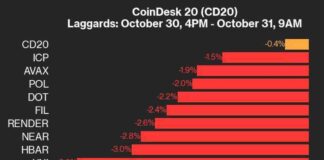The Blockchain industry is currently facing significant challenges in response to the Securities and Exchange Commission’s (SEC) Consolidated Audit Trail (CAT) regulations. The DeFi Education Fund and the Blockchain Association have joined forces to push back against these sweeping regulations, highlighting the privacy and security risks posed by the CAT, especially for participants in the digital asset market.
Privacy and Security Concerns
The CAT, which has been operational since April, represents a massive government-mandated collection of personal financial data in US history. It aims to create a centralized database tracking all securities trades across US markets, accessible to SEC regulators and thousands of private staff members without a warrant or probable cause. This level of access raises significant privacy concerns, particularly in the context of increasingly sensitive financial data.
The amicus brief filed by the DeFi Education Fund and the Blockchain Association emphasizes the unique risks posed by the CAT for digital asset transactions. The SEC’s classification of many digital asset market participants as exchanges, brokers, or dealers could subject these entities to the CAT’s extensive reporting requirements, potentially linking personally identifiable information with blockchain wallet addresses. This exposure of users’ transaction histories to unprecedented scrutiny has raised alarms about potential overreach and the erosion of financial privacy.
Laura Sanders, policy counsel at the Blockchain Association, highlights the broader implications of the CAT, stating that the program’s sweeping surveillance of personal financial data, including potentially sensitive blockchain transactions, represents a significant overreach that threatens to normalize invasive government oversight. This sentiment reflects the industry’s growing concerns about the impact of the CAT on privacy and security within the digital asset market.
Regulatory Overreach and Security Risks
The NCLA, which initiated the lawsuit against the SEC in April, argues that the regulatory body has overstepped its authority with the creation of the CAT. The case has garnered support from over 50 amicus curiae briefs, demonstrating widespread concern across the financial and crypto sectors. The broad scope of the CAT not only raises privacy issues but also creates significant security concerns.
With sensitive data from millions of transactions centralized in one database, the CAT becomes a prime target for cyberattacks. The number of individuals with access to the system further heightens fears about potential data breaches that could compromise both traditional financial data and blockchain transaction records. This presents a significant challenge for the Blockchain industry, as it grapples with the implications of the CAT on the security of digital asset transactions.
Support for Legal Challenge
The DeFi Education Fund and the Blockchain Association have been proactive in supporting the legal challenge against the SEC’s CAT regulations. Their amicus brief highlights the need to address the privacy and security concerns posed by the CAT, urging regulators to consider the unique risks faced by participants in the digital asset market. This united front within the Blockchain industry reflects a shared commitment to protecting user privacy and maintaining the security of digital asset transactions.
In conclusion, the Blockchain industry is confronting significant challenges in response to the SEC’s CAT regulations. The pushback against these sweeping audit trail regulations underscores the industry’s commitment to safeguarding user privacy and security in the digital asset market. As the legal challenge unfolds, industry stakeholders will continue to advocate for a regulatory framework that balances the need for transparency with respect for individual privacy rights.

















